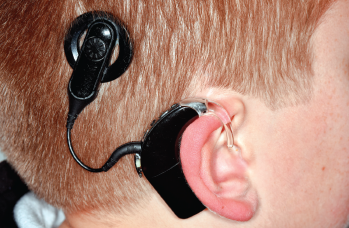Younger age at tracheostomy and longer cannulation period were associated with higher late postoperative complication rates.

Infant Sleep Challenges: Meeting Panelists Discuss Diagnostics
Panelists share insights about their experience with infant sleep challenges.
Age, High BMI May Be Associated with Rebleeding After Pediatric Tonsil Surgery
A look at the risk factors that may contribute to multiple hemorrhages following tonsil surgery in children.

How Otolaryngologists Can Empower Teens to Take Care of Themselves
Citing recent news headlines, like vaping-related deaths, can be one way to introduce a topic or help it sink in with teenagers.

When Should Pediatric Septoplasty Be Performed for Nasal Airway Obstruction?
Septoplasty should be performed in patients with functional problems related to congenital anomalies or trauma.
Factors Associated with Hearing Impairment in Adolescent Youths
Otitis media history was a significant hearing impairment risk factor each period, whereas very low birth weight emerged as an important risk factor after survival chances improved.

How a Smartphone Can Detect Middle Ear Fluid
Investigators show the feasibility of using smartphones to detect middle ear fluid in children with suspected acute otitis media and acute otitis media with effusion.

Does Supraglottoplasty Improve Outcomes in Children with Laryngomalacia?
Current retrospective studies and meta-analyses support the thesis that SGP improves PSG measures in children with congenital laryngomalacia and sleep dependent laryngomalacia.
Pediatric Consent Forms Decrease Overall Opioid Prescriptions
A mandated consent form prior to opioid prescription was associated with decreased overall opioid prescriptions without a resultant increase in postoperative complications in pediatric patients.

Diagnosis and Management of Congenital Hearing Loss
A look at best practices, cytomegalovirus, genetics, and cochlear implants for single-sided deafness.
- « Previous Page
- 1
- 2
- 3
- 4
- …
- 13
- Next Page »